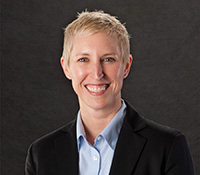
The seniors housing market has experienced rapid evolution over the past decade. The aging baby boomer population and rising life expectancy have increased the need for more, and more varied, senior care options. At the same time healthcare regulation has put pressure on the sector to maximize efficiency and cost of care.
Nowhere is this push-pull more evident than in the skilled nursing facility sector. According to data from Irving Levine Associates, in 2017 “the average price per-bed for skilled nursing facilities plunged 18%.” At the same time, occupancy has fallen. According to the National Investment Center For Seniors Housing and Care’s latest Skilled Nursing Data Report, “the occupancy of skilled nursing properties fell significantly in the fourth quarter of 2017 to 81.9%, down 66 basis points from the previous quarter, and 159 basis points year-over-year.” These trends are expected to continue.
As a result of such trends, many owners – often long-time holders of facilities with significant emotional investment in the residents and employees – are considering whether now is the time to sell. The answer is: it might be. However, to maximize the value of their assets, owners must get a few things right in the transaction.
The right price
Many owners believe they know the value of their asset and it is with that number in mind that they engage a broker or advisor to facilitate a sale transaction. However, achieving or exceeding listing price isn’t the sole indicator of success when it comes to complicated SNF transactions. An owner must consider several key factors when evaluating an offer.
One of the most important factors is understanding the state-specific Medicaid reimbursement cycle and the need for setting caps and baskets for post-closing indemnifications in the purchase and sale agreement. It is crucial to negotiate these points in a letter of intent or similar memo of understanding prior to drafting a definitive PSA and operations transfer agreement. Initial net proceeds to a buyer could be significantly reduced due to funding holdbacks required by the buyer. A buyer’s needs will vary depending on the specific reimbursement system, the potential for Medicare and Medicaid claw-backs and the Buyer’s general perception of liability risk that may arise post-closing.
Other success indicators include a buyer’s access to capital and the operations transfer process. Understanding a buyer’s access to capital early in the sale negotiations enables an owner to anticipate the potential impact of financing contingencies on a timely closing. The transfer process is regulated by state law and therefore varies from state to state. Knowing the process and potential pitfalls therein, as well as the buyer’s specific needs and flexibility, can significantly reduce execution risk and time to close. An owner must account for the importance of many factors – not simply offer price – when it comes to negotiating a deal.
The right information
Once an LOI has been signed, owners must turn their focus to the due diligence period. Providing thorough and accurate information early in the due diligence process will help facilitate a timely and successful closing. Unlike other commercial real estate investments, confidentiality is paramount to the successful execution of a transaction in the seniors housing and long-term care industry. Less experienced sellers may fear breaching confidentiality, which creates unnecessary obstacles making it difficult for potential buyers to comprehensively evaluate the transaction. Experienced partners including advisors, brokers, and legal experts can aid SNF sellers in determining not only what information to provide but also the appropriate timeline in which to provide that information.
In most transactions, SNF buyers require some level of financing to close an acquisition. It is typically during the due diligence period that buyers will engage lenders or begin the process to assume the seller’s existing debt. Because commercial lenders tend to have strict credit requirements, it is important to provide the information they need for underwriting on a timely basis to ensure that the lender will be ready to close. Further, the commercial underwriting process typically requires independent appraisals and other third-party reports for the lender, which in turn require additional time and the sharing of critical information. Due to the inherently complex nature of skilled nursing operations, the list of experienced lenders who are active in the space is relatively small.
Understanding the lender’s underwriting needs early in the process provides for a potentially significant benefit to the seller. Sharing the right information at the right time minimizes disruptions and speeds up closing.
The right team
SNF owners know the value of a skilled and experienced team, as it is that team that helped them achieve their success in the first place. Owners must demand the same excellence from partners they engage to support a sale of the asset. There is no substitute for specific skilled nursing transaction experience.
Moreover, since regulations vary from state to state, it is even more beneficial if partners have state specific experience particularly when it comes to legal counsel. As noted above, the process for obtaining approval for a change in ownership of a SNF can vary widely from state to state, with some states being relatively straight-forward while other states are onerous and time consuming. A team with the experience to navigate this process efficiently can save significant time and expense for their clients.
When evaluating potential partners, check with colleagues and other industry members on the honesty and integrity of those potential partners. In particular, when assessing potential brokers, ask about how many deals have fallen out of contract and why. A broker who employs a targeted process with known entities will close transactions in a timely and professional manner. Choose partners with specialized skilled nursing experience, clear processes, proven success and strong relationships in the industry.
There is a tremendous opportunity in the skilled nursing space for buyers and sellers alike. However, not all opportunities are created equal. Owners who can get it right – the price, the information and the team – will be successful.







